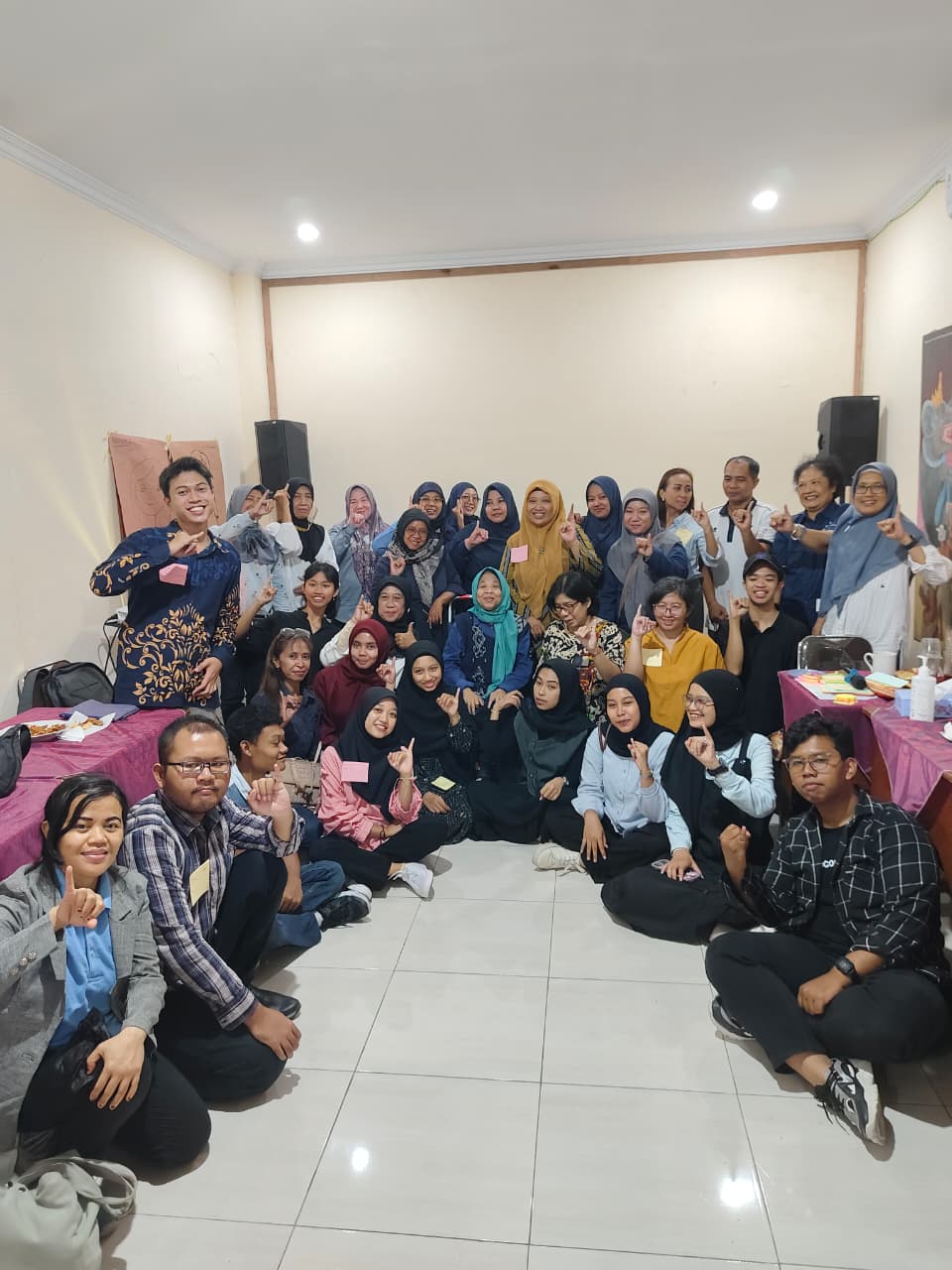Inclusive City means a city that creates a fair, equal, and non-discriminatory environment for all, including people with disability.
This includes a number of aspects – from policies, physical accessibility, and participation in all aspects of life. Surakarta is one of the disability-friendly cities and its image is evident in the many significant changes initiated by the government. Disability events happen in Surakarta on a number of occasions, including National Paralympics Week (PEPARNAS) XVII 2024 and Disability Sports Festival which involves Special-Needs Schools in Surakarta. Disability volunteers accompany people with disability during the events.
Disability volunteers are critical in helping people with disability in all aspects of life, rom education, employment, to access to public services, and promote disability awareness and the importance of inclusion in communities. Unfortunately, disability volunteers still have low-level of awareness and lack regulation on how to accompany people with disability, which add more challenges to people with disability.
Yayasan YAPHI and Solo Inclusion Vision see the problem associated with such issue as needing critical attention. This awareness leads to an idea to open volunteer classes to accompany people with disability known as “Kelas Relasi” or Inclusion Volunteer Classes, which proceeds on Tuesday (19/08) at Anawim Hall, Yayasan YAPHI.
“Kelas Relasi” will proceed on a monthly basis featuring four meetings. The theme for the first meeting is introduction to basic concept about disability presented by Pamitkasih – a female disability activist. 31 participants from a variety of backgrounds, including disability survivors, join the classes.
First Session: Basic Concepts about Disability
Here, Pamikatsih asks participants to write “who are people with disability?” A number of participants write that people with disability are those that have physical, mental, and sensory challenges, while others write that despite their disability, people with disability have other strength. Pamitkasih explains the history of disability movement which started in 1996 and which was instrumental in the Disability Law in 1997. Disability movement in Surakarta itself started in 2016 through rejection of the term disabled and the creation of disability law No. 8 Year 2016 on People with Disability. Pamitkasih explains that Law No. 8 Year 2016 on People with Disability mentions different types of disability – physical, mental, and sensory.
Pamitkasih further elaborates that there are a number of disability levels – from not being able to do anything, to ability to attend training, and ability to attend education. “There is stigma about disability not being able to do anything in Indonesia, despite the fact that people with disability are capable and have equal rights” says Pamitkasih. She also emphasises that the problems keep piling up in Surakarta, including negative stigma, accessibility (only projects), to lack of sensitivity to disability in communities. The “Kelas Relawan” initiated by Solo Inclusion Vision and Yayasan YAPHI may be a solution to increase awareness by making available knowledge about disability.
Second Session: Ideology about Normality
Pamitkasih starts the classes by asking participants to go into groups and instructs the groups to draw pictures of “normal” people. The groups then present their images. There is drawing about men, and drawing about women based on respective groups’ deliberation. Pamitkasih then comments on the images and explains that communities have their own ideas about “normality,” and perceive “disability” as someone or people who lose(s) bodily functions. “Normal people in fact mean people who fulfil three criteria – they have physical existence, mind, and soul” says Pamitkasih.
She also explains about “the envelope ideology” – all Indonesian citizens belong to envelopes. Non-disabled people have open envelopes because all sectors are open to them, whereas the envelopes for people with disability are closed as they are not able to access a number of sectors, having no access at all, and being not recognised. Pamitkasih also suggests that arrogance regarding normality is also found in non-disabled people as well as in people with disability, which does not allow them to fulfil the three criteria needed to build a social construction about disability – such as the structure of culture, the structure of religion, and intelligence cubic. (Renny Talitha Candra)












